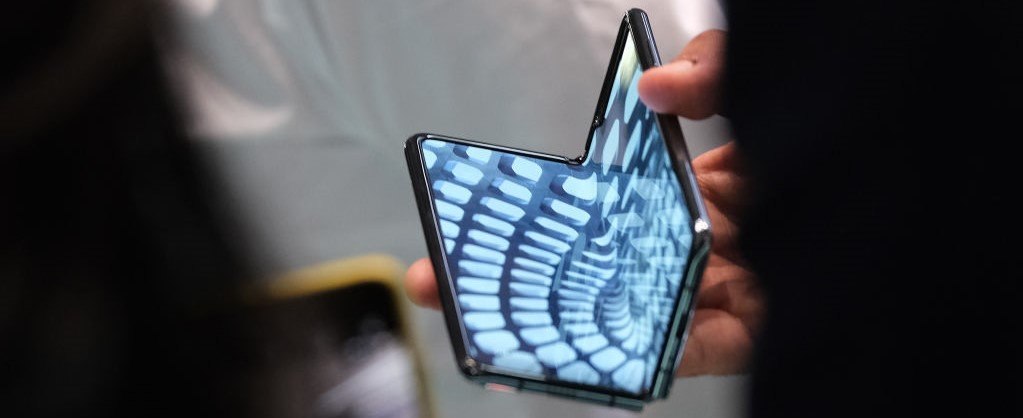
Foldable phones: Gauging interest in America
Foldable smartphones appear to do the impossible. Their seemingly rigid screens can fold over onto themselves with a hinge and gives users both the screen size of a tablet and portability of a phone. In a new YouGov poll, US consumers show a high rate of interest for foldable smartphones. Half of American consumers are very (16%) or somewhat (34%) interested in purchasing a foldable phone as their next device, the YouGov survey shows.
Samsung is helping lead the charge with the Galaxy Z Flip and Z Fold, although Motorola is also aiming for a slice of the folding pie with the Razr, a foldable throwback to the popular flip phone model from the early 2000s.
Our data reveals that, like consumers overall, roughly half (52%) of Samsung owners are interested in a foldable device. Current LG owners are even more likely to be interested (59%). As LG recently announced its retreat from the smartphone market, leaving a large gap to be filled by existing or new players.
Currently, iPhone owners are not quite as interested as their Android-powered counterparts, with 47% showing interest in owning a foldable smartphone. That’s still a sizable portion, and eagle-eyed analysists have discovered through patent filings that the Cupertino tech giant is at least exploring what a foldable iPhone could look like.
The advent of foldable phones comes as tablet sales tumble. Flexible screen technology can give users the wide canvas of a tablet with the portability of a phone able to fit in a pocket. Among people interested in foldable smartphones, portability and convenience are by far the most important factors driving interest in this type of device, YouGov data shows. While roughly two-thirds (67%) list portability as important, 29% say the tech’s cool factor is driving their interest and, while 8% say the devices good for multitasking. In an age when smartphones often look similar, a quarter of respondents say the uniqueness of flexible phones t is a selling feature (25%).
YouGov’s study also explored consumer barriers to owning a flexible phone. We found concern is highest over build quality and durability of these phones (50%). There is also a prevailing feeling among those not interested in a foldable smartphone that this is just a passing fad in the smartphone world (43%). Roughly a quarter of this group (26%) simply don’t like the look of how foldable phones.
Around one in seven (15%) say their preferred smartphone brand doesn’t currently make a foldable phone, which is why they aren’t interested in the technology – and it’s worth noting current iPhone owners are more likely to list this as a reason (25%), further making the case that there is a potential market for a flexible iPhone.
Of course, the cost is also a common reason why Americans aren't interested in the devices, with 37% saying so. That result is not surprising, as the current foldable smartphone offerings range in price from 1,000 to more than $2,000 in the US.
Those prices far exceed what the average American is willing to spend. Only 12% of Americans are willing to spend more than $1,000 on a flexible phone, our data suggests, with a plurality (43%) saying they are not willing to spend more than $600.
Receive monthly topical insights about the telco industry, straight to your inbox. Sign up today. Discover more telco content here.
Methodology: YouGov polled 2,000 US adults online on April 9 between 1:58 p.m. ET and 4:06 p.m. ET. The survey was carried out through YouGov Direct. Data is weighted by age, gender, education level, political affiliation, and ethnicity. Results are nationally representative of adults in the United States. The margin of error is 2.2% for the overall sample. Learn more about YouGov Direct.